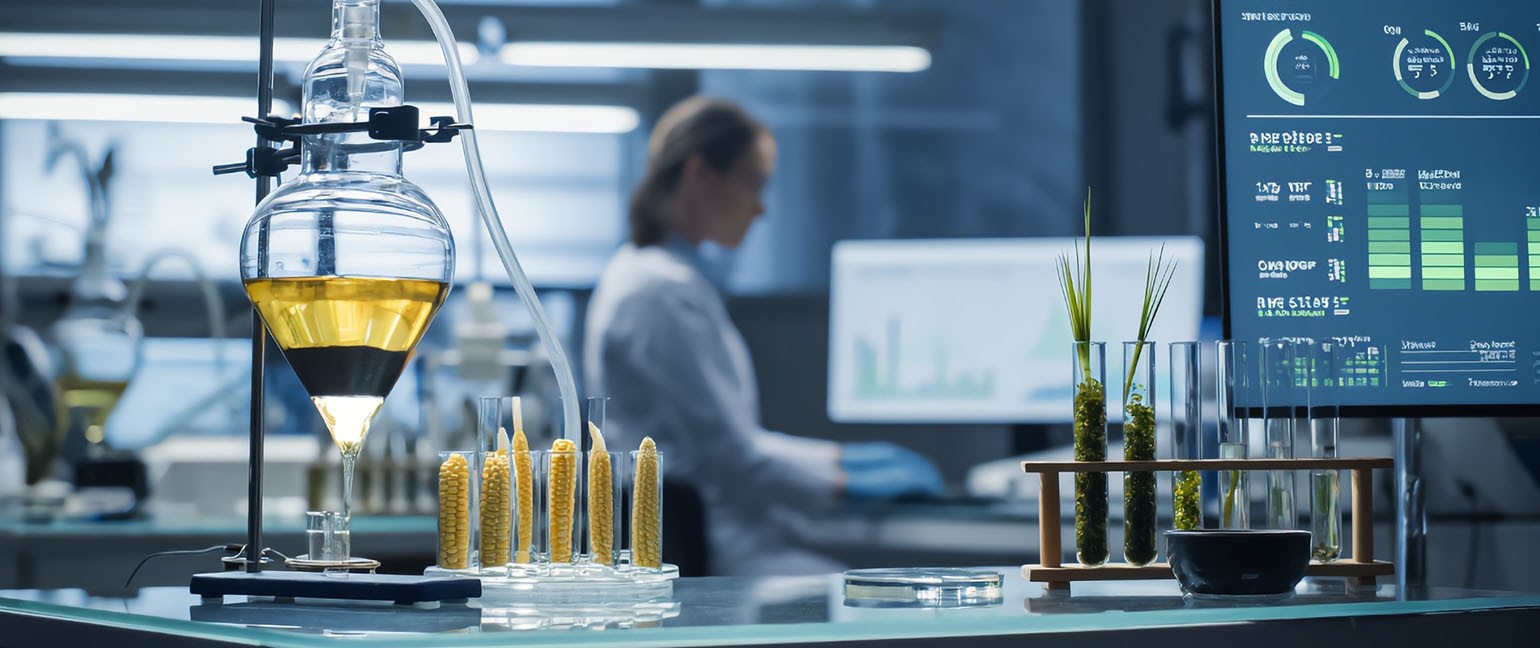I.Definition of Biofuels
Biofuels are fuels derived from renewable biomass (e.g., plants, agricultural residues, forestry waste, algae) through chemical, biological, or thermodynamic conversion. Key types include:
• First-generation biofuels: Ethanol (produced from edible biomass like corn and sugarcane) and biodiesel (made from vegetable oils or animal fats).
• Second-generation biofuels: Produced from non-food biomass (e.g., straw, wood chips, agricultural waste) to reduce reliance on food crops.
• Third-generation biofuels: Made using high-efficiency photosynthetic organisms like algae and cyanobacteria (not yet widely commercialized).
• Sustainable Aviation Fuel (SAF): Aviation fuel synthesized from biomass or waste, replacing traditional kerosene.
II. The Role of Nitrogen in Biofuel Production
1.Creating Oxygen-Free Environments for Fermentation and Catalysis
• In ethanol production, nitrogen is used to maintain anaerobic conditions for microbial fermentation, preventing oxygen from inhibiting metabolic activity.
• In biodiesel transesterification reactions, nitrogen acts as a protective gas to prevent raw material oxidation and improve reaction efficiency.
2.Preventing Oxidation of Raw Materials and Products
• Biofuels (e.g., ethanol, biodiesel) are volatile and flammable. Nitrogen displaces oxygen to prevent oxidation degradation.
• During storage of raw materials (e.g., oil crops, waste oil), nitrogen inhibits microbial growth and oxidation, extending shelf life.
3.Supporting High-Temperature Processing and Energy Conversion
• In thermochemical conversion (e.g., pyrolysis, gasification), nitrogen serves as a carrier or protective gas to prevent biomass from reacting with oxygen, ensuring energy efficiency.
• Example: During biomass gasification for syngas production, nitrogen regulates the reaction atmosphere to reduce impurities.
4.Enhancing Production Efficiency and Safety
• Nitrogen is used for equipment cleaning and pipeline purging to avoid accumulation of flammable residues and reduce explosion risks.
• In biofuel refining, nitrogen aids in impurity removal, improving product purity.
III. Advantages of On-Site PSA Nitrogen Systems as Nitrogen Sources
1.Process Stability and Safety
• Adjustable Purity: PSA systems provide real-time nitrogen purity adjustment (95%-99.9995%) for different production stages.
o Fermentation: Anaerobic conditions maximize ethanol yield.
o Catalysis: High-purity nitrogen prevents raw material oxidation during biodiesel synthesis.
o Storage: Nitrogen blanketing prevents fuel volatilization and oxidation.
• Continuous Supply: Automated systems operate 24/7 without interruption, avoiding production halts or material waste.
2.Improved Efficiency and Product Quality
• Optimized Reactions: Nitrogen as a protective gas in thermochemical processes (e.g., gasification, pyrolysis) reduces impurities and boosts syngas/bio-oil yields.
• Reduced Losses: Nitrogen purging minimizes flammable residue buildup, lowering maintenance downtime and explosion risks.
3.Flexibility and Scalability
• Rapid Response: PSA systems produce qualified nitrogen within 20-30 minutes of startup, adapting to temporary capacity increases or emergencies.
• Modular Design: Systems can scale modularly to match production needs, from lab-scale to industrial applications.
4.Environmental and Sustainability Benefits
• Green Technology: PSA nitrogen generation is a physical adsorption process with no chemical byproducts, aligning with biofuel’s low-carbon goals.
• Carbon Footprint Reduction: On-site nitrogen production eliminates the energy and emissions associated with liquid nitrogen transportation, supporting "dual carbon" targets.
IV. Application Examples
• Ethanol Production: Nitrogen protects anaerobic fermenters, enhancing ethanol conversion.
• Biodiesel Synthesis: Nitrogen shields transesterification reactions from oxygen, preventing acid spoilage.
• Biomass Gasification: Nitrogen acts as a carrier gas to improve syngas purity.
• Fuel Storage: Nitrogen blanketing prevents volatilization and oxidation, extending fuel shelf life.
PSA nitrogen generators provide low-cost, high-purity, and continuous nitrogen supply for biofuel production. They enhance process safety, reduce losses, and support environmental sustainability, making them a critical technology for modern bioenergy industries.



